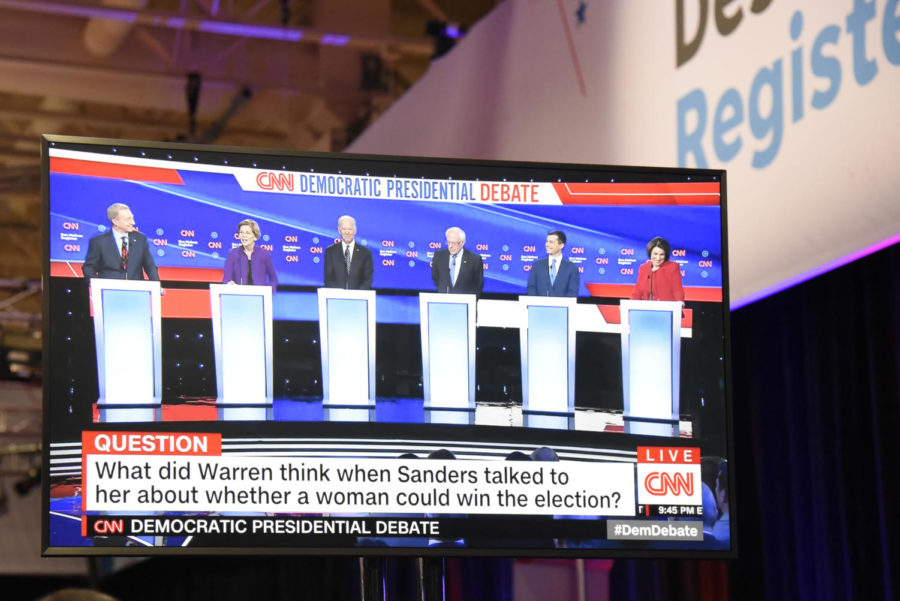Johnson: Debates shouldn’t be a big deal
Caitlin Yamada/ Iowa State Daily
Columnist Zachary Johnson believes people shouldn’t put as much weight on debates as they do. He argues that debates are just another way for candidates to restate their practiced speeches.
January 16, 2020
Debates should not play as big a role in how we determine nominees or the president.
Debates are soundbite machines which see candidates grandstanding and blatantly not answering the questions by the moderators.
The way I see it, there is almost no purpose for the moderators to be there, as in every single debate, every candidate has frequently only briefly answered the question asked and have gone on to simply restate pieces of their stump speeches until the moderators cut them off.
This gets away from what’s truly important about what we need in a president, and that is a leader who will bring our government to a place where it will help the most people in the most effective way.
When we see these big personalities (see Donald Trump) we look at only the superficial and exterior traits of these candidates and less at the substantive parts, which can and should be seen as the more important parts.
There have been some egregious cases of presenting these debates like they are sporting events being put on in the same way, something like the Super Bowl would be (CNN is the worst offender in my opinion).
This creation of a pseudo-event (see works by Daniel Boorstin, Walter Lippmann or any class taught by Professor Dirk Deam at Iowa State) is simply the creation of a machine that churns out soundbites for the people of Twitter to consume (Nate Cohn has a great article on the people of Twitter). This leads to a broader and more widespread discussion of the election, sure, but I think it also makes the discussion less of a deep one.
I am not refuting that debates do have some effect on the public opinion of these candidates; I am instead positing that there is a more robust, accurate and effective way to do so.
When you are considering who to support in this Democratic primary process, it’s important to make your decision not from the soundbites that you hear on Twitter but by reading about their record, reading about their policy and reading about how they have performed as a lawmaker or other profession in the past.
I think it is dangerous how much weight the public puts into the surface level aspects of these candidates. It is this sort of attention paid to this part of a politician that led to Donald Trump, who managed to get elected president based only on how he made his voters feel and not what he is actually doing.
Politics should not come down to who has the best brand and who rakes in the most money (or has it in the first place, in the case of candidates like Bloomberg and Steyer) and can therefore spend it on getting their quick, 10 second long clip saying a great bumper sticker line.
We need to learn from our mistakes of 2016 and focus on substance rather than what’s on the surface.







